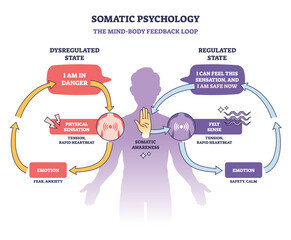Parents,
It is that time of year again, the return to school! For parents, this years’ back to school preparations were probably met with mixed emotions. For some of you, it can be a sigh of relief to see your kids go back to school after being home for what was over a year. On the other hand, some parents continue to be reluctant about sending their children back as the pandemic persists. This year, students are also filled with their own set of conflicting feelings and challenges. There are those who are looking forward to being back at school in-person with their friends and teachers, yet they are cautiously optimistic that schools will remain open, while some remain fearful of the virus.
We know this will be another tense start to school for all of us, so how can we make the best of this new school year? We can remind ourselves and be intentional about maintaining feelings of hope and confidence, not helplessness and fear. When it comes to kids, the most effective way to set them up for a successful school year is to boost their executive functioning skills. Here are some tips from a former school social worker to help your family start the school year on the right track!
Tip 1: Create a routine early!
Creating a routine is key to ensuring your students’ success! Routines can help set expectations in the morning and after school. In addition to learning time-management, routines create feelings of security and stability which are especially important in our world of significant unpredictability. Building clear expectations for morning tasks can help keep kids on target and ensure they are prepared to walk out the door on time. In the long run, setting a consistent routine can reduce conflict and it can help create a positive start to everyone’s day. After school routines assist kids in organizing their “free” time to complete homework, household chores, engage in extracurriculars and still have time for relaxation before bedtime. Anticipating how everything runs from the moment they get home from school boosts self-sufficiency ensuring they will be able to create their own routines as they grow up.
Tip 2: Limit the screen time at night!
Technology is a part of everything we do for work, school, and leisure time. Television, cellphones, tablets, video games, and computers keep us engaged and stimulated throughout our day. When we look at the bright light with moving colors our brains get stimulated, and the blue light emitted from these devices makes it challenging for us to wind down at night. It is essential to limit screen time for a minimum of 30 minutes before bed to ensure that kids’ brains have a chance to unwind. The removal of devices, along with specific, agreed upon bedtimes will help your child fall asleep easier, stay asleep longer and wake up more naturally. As children develop into teenagers, their phones become a lifeline. Taking their phone away at night may not always be possible, but below are some tips to ensure they are managing their phone time properly.
#1 – When we are comfortable in bed, we resist getting out of bed for any reason. Having teens charge their phones across the room can help in two ways:
a. They are less likely to get out of bed to look at their phone.
b. If they use their phone as their alarm, this will give them a reason to wake up and get out of bed in the morning.
#2 – When our phones light up, ring, or vibrate during the night it can wake us up, interrupt our valuable REM sleep and make it difficult to return to sleep. We want to prevent the notifications throughout the night to ensure kids are getting a full night’s rest. The Do Not Disturb mode will stop the notifications during the night and they can easily be turned back on in the morning. Another way to create a quiet night is to simply turn the phone screen side down.
Tip 3: Time management – Getting things done on time and to completion!
The executive function skill of time management is needed for task initiation and completion. Helping children with time management will help ensure they are getting everything completed and turned in on time. This skill can help in all areas of life, and not just for school; this is a life skill. As kids get older, homework load increases and as they start switching to different teachers for each class, it becomes more challenging to remember what needs to be done. Time management and incentives to complete their work can help kids complete their homework while also allowing them coveted free time before they go to bed. Having specific expectations for when and where homework is completed will also prevent them from distractions and allow them the ability to finish their work at a reasonable time.
Tip 4: Organization is key!
Helping students stay organized is key to their success. When students are in elementary school, it is easier for them to keep things organized because they typically remain in one classroom and have one teacher for all core subjects, with minimal homework assigned. As students move into middle school and high school, they are eventually expected to navigate multiple classes, teachers, and complete multiple homework assignments and longer-term projects. By creating structure with your child, it can help them stay organized.
One of the simplest organizational systems is to use the same color notebook and folder for the same class. This will immediately allow them to recognize and easily locate items from their lockers or backpacks. The other key to organization is to make sure they consistently use the system you agreed on. Once a week, check your child’s backpack with them to make sure everything is filed correctly, keeping an eye out for any homework not completed or turned in. Lastly, make sure that students write down their assignments. This can be done in an assignment notebook, on a phone, taking pictures of the board, or writing it down on a separate sheet of paper or post it notes. No matter what their system is, make sure they create steps for how they begin and finish their homework and are in the routine of checking it daily.
Tip 5: Let kids be kids!
The start of the school year is stressful for everyone. All parents, kids, teachers, and school staff are adjusting and adapting into the new routine. Everyone has something completely brand new to learn. Give your children grace at the beginning of the year when things are still calm and have a little fun. Allowing them breaks to access their preferred activities may lead to less stress when things become more challenging as the year progresses. We are asking a great deal of our children and of ourselves right now, so giving them time to be kids can go a long way in decreasing yours and their stress levels.
Hopefully, these tips will be useful in getting the school year started off well for your entire family. Times are tough and anything that we can do to make it a little bit easier on students will make it more manageable on us as parents. If you ever feel you may need additional support adjusting to the stress and challenges you are facing, please reach out to your school social worker or teacher as they may have additional advice on what might best assist your student in the classroom. Additionally, any one of our child and teen specialists are available to help with parenting support and/or mental health counseling for you and/or your child. It brings me great joy to see my child clients go from “I can’t” to “I can!” and I am here to help you feel calm, capable, and confident as well as you navigate these unstable paths ahead. Please reach out to me directly for additional information or to schedule an appointment at patrickk@illuminatetherapy.com
Truly,
Patrick Keclik, LCSW, EMDR




